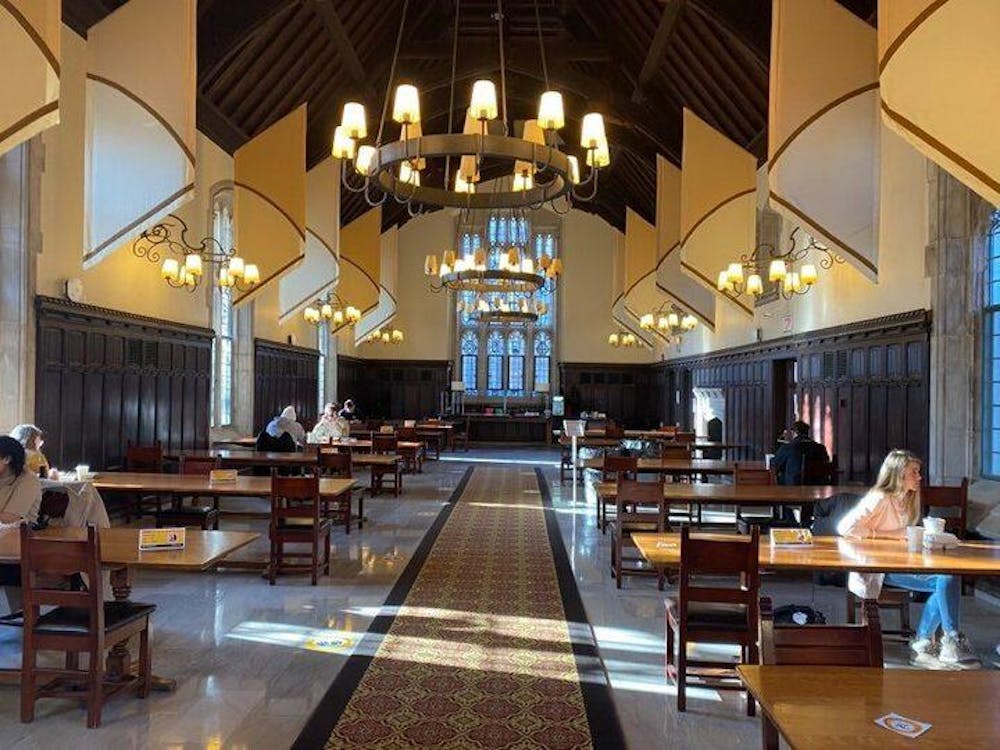The Shanghai Peking Opera Company visited the University for the first time on Tuesday to perform one of its most famous shows, “Farewell My Concubine.”
In the United States, the University was chosen as the only performance location other than the Metropolitan Museum of Art for this work.
The show was brought to the University by Jianping Mei GS ’90. Mei earned his Ph.D. in economics at the University and is currently a professor of finance at the Cheung Kong Graduate School of Business in Beijing.
“[Mei] is the one who came up with the idea of bringing Chinese opera to a newer level — to renew it,” said Paula Chow, former director of the Davis International Center.
“I wanted to give back to the University,” Mei said. He mentioned that there were plans for bringing the Shanghai Peking Opera Company back next year, but they have not yet been finalized.
“Farewell My Concubine” is a story about two lovers amidst a battle toward the end of the Qing Dynasty. This week's performance starred Shi Yihong, who is known as the “first lady of Chinese opera,” and Shang Changrong, one of China’s most famous and celebrated operatic performers.
Shang played the character of Xiang Yu, a general and warlord facing defeat, and Shi played his concubine, Consort Yu. In the one-hour performance, tensions and emotional drama were marked by a combination of live instrumental music on stage, vocal performance, mime, and dance. The characters wore extravagant costumes and colorful makeup accentuating their features in line with typical renditions of the opera.
The audience was engaged throughout the performance, applauding and cheering after impressive solos and dances from the actors.
The performance's director, Sherwood Hu, was joined by Shang and Shi in a Q&A session after the show. East Asian studies professor Paize Keulemans mediated the discussion.
Characterized by voices that represent emotion, Peking opera is an art form which originated more than 200 years ago, Hu explained. He praised the two actors, who started training from a young age, as now-legendary artists.
“This is my first time at Princeton, and I am very happy and thankful for our friends and audience members, both Chinese and foreign, tonight,” Shi said.
Shi noted that playing a concubine, a lady of high stature, requires calm, stately movements, and described the subtleties of the hand gestures, eye movements, and foot motions.

Peking opera is also distinctive for having minimal props.
“The opera requires active participation from your imaginations,” Shi said. For example, when a horse came out during the performance, only a whip was shown. Likewise, one chair onstage can be used for sitting, but two chairs stacked on top of each other becomes a mountain.
“Props can be found in the body and the language of the actors,” Shi continued. If you step onto a boat, this all depends on gestures and physical movements of the actors, which is unlike an American show where a real boat or horse might come onto the stage, she explained.
“It’s not just a matter of expressing inner emotions but also a matter of showing abstract matters through clothes, [swords], and makeup,” Shang said.
In performing these opera characters all characters must have martial valor and the foundations of martial arts, he continued. For example, without Consort Yu’s sword dance, the performance would not have been so memorable, he explained.
“Grace and martial valor are needed to play role well,” Shang said.
The company has been performing this show around the world, including in Europe and South America.
“Tonight was an unforgettable night for us because the [University] gave us the highest artistic inspiration,” Shang said.
This event was sponsored by the Paul and Marcia Wythes Center on Contemporary China, the Chinese Linguistics Project, the East Asian Studies Program, the Lewis Center for the Arts, the Music Department, and the Princeton Institute for International and Regional Studies.
A special exhibit on the Peking Opera will be on display in the East Asian Library through the end of September.









